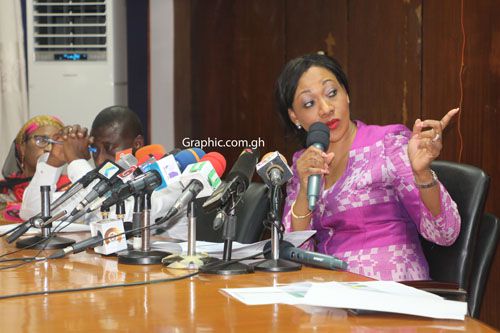
Stakeholders skeptic about ROPAA implementation
Stakeholders at a day’s engagement with the committee handling the implementation of the Representation of People’s Amendment Act (ROPAA) 2006, have expressed skepticism about the country’s ability to organise a credible election outside the borders of Ghana as required under the ROPAA.
The ROPAA seeks to provide an opportunity for Ghanaians living abroad to participate in general elections in their various locations across the world.
Even though it was passed into law by Parliament some 12 years ago, the EC has been unable to see to its implementation.
The Electoral Commission (EC) inaugurated a nine-member committee in December, last year to oversee the implementation of the ROPAA.
The Eastern Regional stakeholder engagement is the third after the committee’s earlier meetings in the Central and Western regions.
Participants in Koforidua were of the view that the country was not ready to undertake such an exercise in view of the many challenges it has faced in previous and even in recent elections.
The stakeholders included civil society organisations, political party representatives, media, traditional and religious authorities and some people with disability.
The ROPAA is expected to be implemented in the 2020 elections based on the outcome of the committee’s stakeholder engagements.
Some countries in Africa, including South Africa, and Mali, have been able to get its people living abroad to vote in general elections.
Discussions
The ROPAA Implementation Committee headed by the Electoral Commission’s Deputy Chairman in charge of Corporate Services,
Dr Eric Bossman Asare, first sought to solicit participants views on how to authenticate who a Ghanaian is.
According to a member of the Committee, Reverend Dr Ernest Adu-Gyamfi of the National Peace Council, three documents, a valid passport, resident permit and proof of dual citizenship, would be required for validation and asked participants whether or not these were enough.
On this matter, some of the participants, including a member of the committee, Mr Kofi
Akpaloo, Founder of the Liberal Party of Ghana previously known as Independent Peoples Party, disagreed.
“If a person has a Ghanaian passport and no resident permit, it does not change the fact that he is a Ghanaian “, he stated.
Concerns
The Krontihene of New Juaben, Nana Baffour Tutu Nyantakyi Boateng, was of the opinion that the ROPAA should begin from presidential elections because of the cost involved.
He said since heads of missions abroad were politically appointed and results maybe challenged by other political parties, it would be important to assign EC staff abroad to undertake the exercise.
Mr Maxwell Kudeko of the Multimedia Group said Ghana was not ready for ROPAA and the idea should be shelved for now.
According to him, even though ROPAA was a constitutional requirement, the timing was wrong.
Similar sentiments were expressed by other stakeholders.
Another participant described the implementation of the ROPAA as a recipe for disaster giving time differences.
Assurance
Members of the committee took turns to address some of the concerns of the stakeholders.
Dr Asare for instance indicated that they ( committee) were on a fact finding mission after which they would present a report to the government for a decision to be taken.
Committee members
Other members of EC ROPAA Committee are Dr Benjamin Kumbuor, a leading member of the National Democratic Congress (NDC), Mrs Adwoa Abrefa Asuama, EC Member, and Mr John Boadu, General Secretary of the New Patriotic Party (NPP).
The rest are Mr Ransford Gyampo of the University of Ghana, and Dr Kojo Asante of the Centre for Democratic Development (CDD) Ghana, and Mr Kofi Akpaloo, representing the other minority parties.
